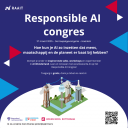Liza Verheijke
Activity
- 25Updates
- 6Thumbs up
- 2Comments
Liza Verheijke,
Community Manager
at Amsterdam University of Applied Sciences,
posted
Liza Verheijke,
Community Manager
at Amsterdam University of Applied Sciences,
posted
Liza Verheijke,
Community Manager
at Amsterdam University of Applied Sciences,
posted
Liza Verheijke,
Community Manager
at Amsterdam University of Applied Sciences,
posted
Liza Verheijke,
Community Manager
at Amsterdam University of Applied Sciences,
posted
Liza Verheijke,
Community Manager
at Amsterdam University of Applied Sciences,
posted







